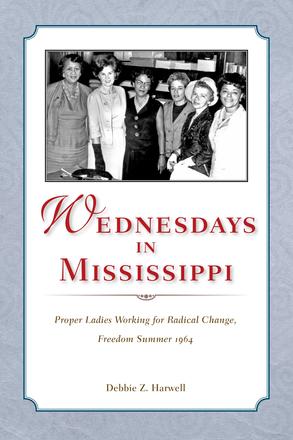
Wednesdays in Mississippi
Proper Ladies Working for Radical Change, Freedom Summer 1964
The story of brave women who met to build bridges between the races and end segregation
Description
As tensions mounted before Freedom Summer, one organization tackled the divide by opening lines of communication at the request of local women: Wednesdays in Mississippi (WIMS). Employing an unusual and deliberately feminine approach, WIMS brought interracial, interfaith teams of northern middle-aged, middle- and upper-class women to Mississippi to meet with their southern counterparts. Sponsored by the National Council of Negro Women (NCNW), WIMS operated on the belief that the northern participants' gender, age, and class would serve as an entrée to southerners who had dismissed other civil rights activists as radicals. The WIMS teams' respectable appearance and quiet approach enabled them to build understanding across race, region, and religion where other overtures had failed.
The only civil rights program created for women by women as part of a national organization, WIMS offers a new paradigm through which to study civil rights activism, challenging the stereotype of Freedom Summer activists as young student radicals and demonstrating the effectiveness of the subtle approach taken by "proper ladies." The book delves into the motivations for women's civil rights activism and the role religion played in influencing supporters and opponents of the civil rights movement. Lastly, it confirms that the NCNW actively worked for integration and black voting rights while also addressing education, poverty, hunger, housing, and employment as civil rights issues.
After successful efforts in 1964 and 1965, WIMS became Workshops in Mississippi, which strived to alleviate the specific needs of poor women. Projects that grew from these efforts still operate today.
Reviews
"White southerners heaped vicious blame on 'outside agitators' for most of the region's civil rights problems. What happened when those so-called agitators arrived on commercial airliners wearing pearls, purses, and white gloves, along with the influence of the powerful families and social circles they represented? Debbie Harwell's engaging new book uncovers the long-hidden story of these Wednesdays Women and how their often-quiet activism carved out a key niche during Freedom Summer and beyond."
- Kent Germany, author of New Orleans after the Promises: Poverty, Citizenship, and the Search for the Great Society